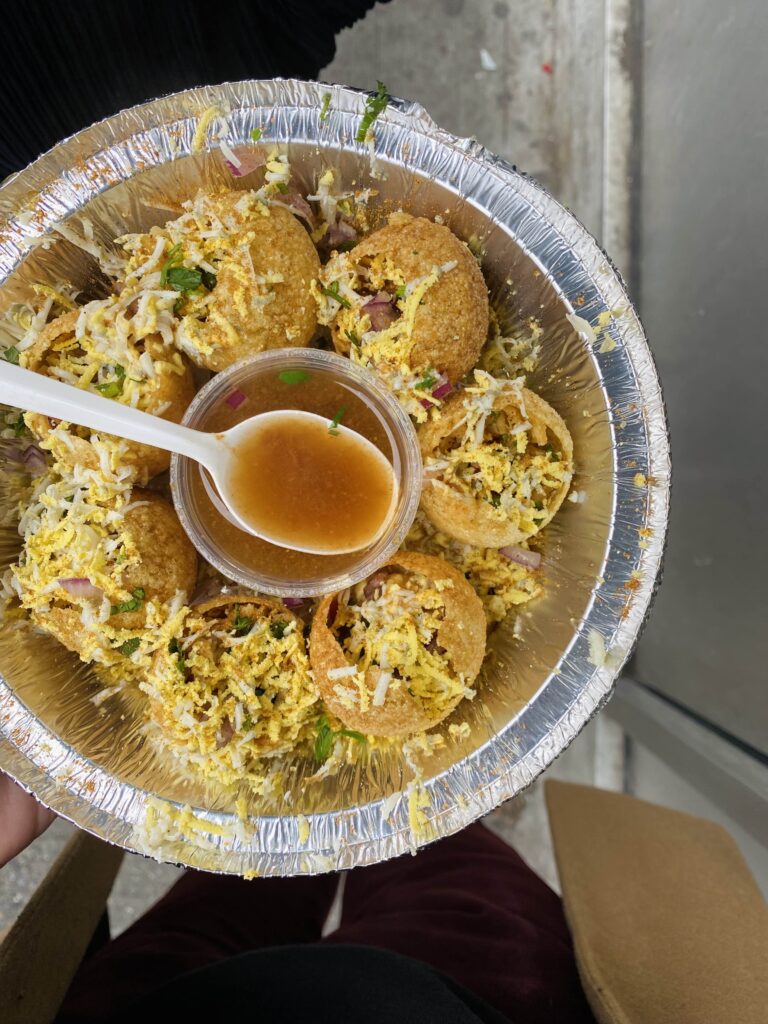The air is sweet and savory as I walk through the buzzing streets of Jackson Heights, Queens. I find myself tasting flavors that I didn’t grow up on. Beef-filled Nepalese momos—my tongue tingling from the Szechuan peppercorn-infused sauce. Crispy semolina Bengali fuchka filled with warm spices and starches, swimming in a slightly sour tamarind broth. Sweet Indian gulab jamun in its syrupy coating, coupled with a masala chai. Columbian arepas—dense and cheesy, and letting me know that I’ve hit capacity for the day.
This self-guided food tour serves as a way to connect Queens to the distant. It’s a personal connection. It’s a connection that feels so different from the natural foods tradeshows that I’ve been frequenting in recent years, where new products are invented in an attempt to disrupt the way consumers eat—alt proteins at the forefront.
Plant-based meat alternatives have been taking a public beating as of late. Most recently, Bloomberg took down the movement with a heavy emphasis on the shortcomings of Beyond Meat and Impossible Foods.
There are a lot of emotionally-charged dogmas on both sides of this coin. I don’t claim to be an expert on nutrition, and I don’t claim to be an expert on climate change or carbon emissions. I have feelings, beliefs, and what I believe to be a generally sound understanding of these topics, but that’s not what is being discussed here. What is being discussed is the fact that consumers are not adopting these products in the way that was once expected.
Fake meat lacks sanctity. As a species that evolved on an omnivorous diet, the consumption of meat has been a focal point in sacred practices for as long as human documentation dates back. For most, the sanctity of eating meat is genetic.
This genetic predisposition to craving meat is what gave the alternative protein movement an opportunity. The proposition of eating something that is allegedly better for the health of consumers and for the environment, while still tasting like meat, drove tons of trial and investment, and ultimately filled the category with optimism.
When eliminating something of sacred value, there must be a sacred promise in return. I’m not so sure that the promise can be that “it tastes similar” or some element of climate guilt.

Eating natural whole foods offers a connection to our ancestry and genetic makeup. There are many cultures that have been thriving for centuries on herbivorous diets. I see a world where plant-forward diets continue to grow, but it’s hard to imagine that meat replicas are going to have a big seat at that table.
Early brands have failed in creating something that scratches that genetic desire for meat, but not for lack of trying. Alternative proteins simply don’t taste like quality meat, they don’t make you feel the way you do after eating meat, and they lack the overall sanctity of eating meat.
This isn’t nutritional advice. If you’re eating Impossible Burgers and thriving, continue.
The intent of the plant-based movement is noble. Collectively reviewing how we utilize resources is also part of our genetic makeup when it comes to survival. It’s not something to take lightly. Yet the expectation that we can replace something of such high value with something else that is entirely new is showing to be ineffective.
I’d be remiss to not mention the privilege associated with this conversation. Plant-based meat isn’t cheap, nor are the categories that I see taking over its market share; regeneratively-sourced meat, and simple protein-rich savory plant foods made from legumes.
The plant-based movement remains in a period of high growth, and there is reason to be optimistic if you’re apart of it. That said, leaders of the movement must find new ways to connect with consumers at a sacred level.
People need to eat. People need protein. People crave sanctity.
